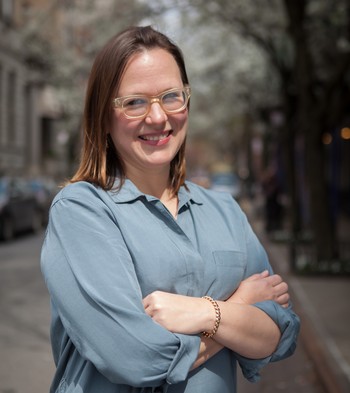Redefining where and when church happens
 Approaching Advent as if it were my first
Approaching Advent as if it were my first
What martial arts have taught me about my approach to faith
by Mieke Vandersall
“I am completely lost,” I informed my 200+ pound, burly, male partner in aikido just the other day. I wasn’t exactly asking him to be nice to me, but perhaps I just wanted him to realize that I couldn’t be thrown around like others in the class. “Do you want to stay lost or would you like to be found?” he asked, only half joking, a big, warm smile on his face, while practicing some kind of joint-lock twisting, weight-shifting exercise that left me splat on the mat.
The problem with being “found” is that the moment I grasp a particular technique, another one is thrown my way that complicates everything I just learned. Being found only lasts in split-second intervals.
I’ve discovered the same is true for faith; in fact, martial arts and the work we do together as a church aren’t all that different.
Being a beginner sucks. I spent 12 years learning goju karate, a martial art vastly different from aikido, and then a year ago left that art to begin aikido, to become a beginner all over again. I think of visitors to our churches stumbling into coffee hour, trying to understand why we do particular things, why we believe what we do, and what that has to do with their particular lives. I think of the church in general that too often thinks it has become an expert when in fact we are just beginners.
In martials arts, and in church development, there isn’t much of a set curriculum; there’s no crutch of linear thinking.
‘We must approach this time with wonder, openness, and few preconceptions. We must become listeners, again.’
A year into my aikido training I can see that I’ve improved. And yet, I still feel like a complete beginner. Compared to aikido artists who have trained for five, 10, or 25 years, I am. Yet, I wonder if I am just moving way too slowly, if I am a lost cause.
My 200+ pound, burly male partner can see the frustration on my face. He gently tells me that I won’t get this particular move for another few years—and that then I will be confounded by something else—so patience would be an excellent thing to learn.
Trying something new, something unchartered, and having patience with that trying, is this not God’s call to us, as a church?
In Zen Buddhism, and the martial arts it’s inspired, there is something called shoshin, a concept meaning “beginner’s mind.” The idea is that we approach whatever we are doing with curiosity, openness, and eagerness, without preconceptions. We approach every situation with fresh eyes, knowing we don’t know anything and being at peace with that. We embrace not knowing the answers.
It’s hard to adopt a beginner’s mind after having been proficient, even an expert, in something. Being a beginner sucks. But it’s also liberating, for I am discovering things about my body, my self, that I never would have learned through karate. If the church were to admit the same thing, what might we discover about ourselves?
I am thinking about translating the beginner’s mind to our Advent practice. We are waiting; we are providing space for the Divine to be born in areas of our lives that may seem unsuitable or impossible to change. We don’t know how the Divine will be born, and we are practicing being at peace with that. We are not completely without a guide. We have our own 200+ pound, burly aikido partner, namely the Holy Spirit, whose accounts of Christ’s birth are in Scripture. But like my friend, that Spirit tends also to speak in riddles. We see and hear “dimly,” says Paul (1 Cor. 13:12).
At times we think we know more than we actually do. We must approach this time with wonder, openness, and few preconceptions. We must become listeners, again. We must try, as we light each candle.
How, in unchartered territory, will we experience God’s joy? Peace? Love? Hope? The birth of the Divine?
This Advent I am also praying for the church at large to have a beginner’s mind. In many ways, traditional forms of church are no longer relevant. And just as I left goju karate when it was no longer relevant to my life stage, perhaps we too need to try our hand at something new.
We have been called to leave all the ways we do church and to admit that we don’t know a whole lot. There will be a time for remembering, for learning from the past. But, given just how steeped we are right now in that past (and its chains), I think it’s time we clear our minds so that we can dream unfettered. If we suddenly had no curriculum, no preconceived notions, no roadmaps, what kind of church would we create?
How can we marvel at the humanity God has placed before us and be church with them? How can we bring God’s joy, peace, love, and hope into these relationships, witnessing to the birth of the Divine? How can we use the incredible resources that we have and use them to experiment? How can we do all of this with the wonder of a beginner?
Mieke Vandersall is the founding pastor of Not So Churchy and a fundraising consultant with Wingo, Inc. She lives with her wife and their dog in New York City.